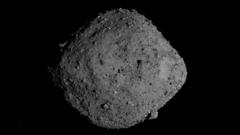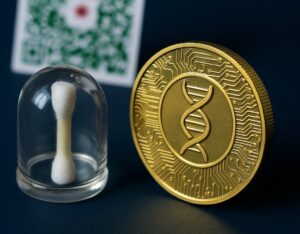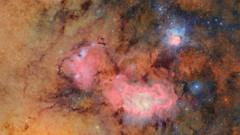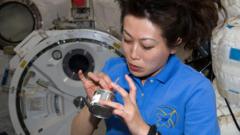The analysis of samples from asteroid Bennu has unveiled a wealth of organic compounds, including amino acids and nucleobases, suggesting that asteroids may have delivered fundamental ingredients for life on Earth and potentially other celestial bodies in the solar system.
Discoveries from Asteroid Bennu Illuminate Origins of Life

Discoveries from Asteroid Bennu Illuminate Origins of Life
Scientists unveil groundbreaking findings from asteroid Bennu, revealing essential chemical building blocks of life that could reshape our understanding of life's origins.
The chemical building blocks of life have been uncovered within the dust of asteroid Bennu, according to recent findings from a NASA mission. These samples, collected and returned to Earth by the spacecraft Osiris Rex, are rich in minerals and thousands of organic compounds. Notable discoveries include essential amino acids that form proteins and nucleobases, the critical components of DNA. While these findings do not confirm that Bennu once harbored life, they bolster theories that asteroids delivered vital organic ingredients to Earth billions of years ago during violent collisions.
Professor Sara Russell, a cosmic mineralogist from the Natural History Museum in London, expressed excitement about the implications of the research, stating, "It's telling us about our own origins and answers to significant questions about how life began."
The groundbreaking study details the discoveries in two papers published in the journal Nature. The Osiris Rex mission involved a sophisticated operation where a robotic arm collected material from the 500-meter-wide asteroid, resulting in approximately 120 grams of black dust, which is being meticulously analyzed by scientists worldwide.
Recent examinations revealed that Bennu is abundant in nitrogen and carbon-rich compounds, including 14 of the 20 amino acids necessary for life on Earth as well as all four nucleobases that make up DNA—adenine, guanine, cytosine, and thymine. Additional findings indicated the presence of various minerals and salts, hinting at water existing on the asteroid at some point in its history. The sample also contained ammonia, vital for numerous biochemical processes.
While some compounds had previously been identified in meteorites found on Earth, many components in Bennu's sample were new to scientists. Russell remarked on the meaningful diversity of minerals present in the findings, emphasizing the excitement surrounding the ongoing analysis.
This research contributes to the growing body of evidence supporting the hypothesis that asteroids played a pivotal role in delivering water and organic materials to Earth during the formative stages of the solar system, a period characterized by a tumultuous environment filled with numerous asteroids like Bennu. Dr. Ashley King from the Natural History Museum elaborated on the significance of the research, stating that this paved the way for exploring critical inquiries regarding the conditions that foster life on Earth and the possibility of finding it elsewhere in the solar system.
As scientists continue to delve into the insights offered by the dust from Bennu, they remain committed to answering questions about our solar neighborhood and the origins of life. Future explorations may hint at where life might exist beyond our planet, fueled by the rich history of cosmic interactions that shaped Earth's environment.


















